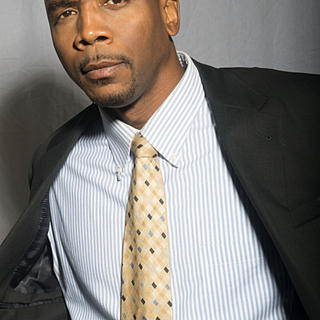A Brief History of American Black Cinema
- Terence V. Steele
- Mar 18, 2017
- 3 min read
Updated: Oct 18, 2020

When one thinks of African-American cinema today, filmmakers like Ava DuVernay or F. Gary Gray come to mind. In the 90s it was Spike Lee, John Singleton, and the Hughes brothers. But if we go further back, the year 1919 is where we have our first black filmmaker known in America: Oscar Micheaux. He was one of a kind, he was Spike Lee before there was a Spike Lee. Micheaux was a true filmmaker in the sense that he wrote, directed, and produced all of his films. Amazingly, he did it at a time when African-Americans were being segregated and discriminated against the most. Of course he catered to black audiences and he basically gave birth to black cinema with a string of 42 successful feature films from 1919 to 1948.
Then came Gordon Parks in the 1960s and '70s. While Parks didn't produce nearly as many films as Micheaux, he was more of a visual artist. Micheaux was a writer by trade who transformed into a filmmaker. Parks was a photographer by trade who transformed into a director. Both men's contributions, I would say, were the catalysts for black cinema in America.
Much like America itself, the black cinema has evolved and changed over time. It has integrated itself into Hollywood and American society almost seamlessly. So much so, it's becoming more and more difficult to even define what a "black" film is anymore. For me, this is the Spike Lee effect or the birth (and perhaps death) of the conscious black filmmaker. The reason being Lee's tremendous influence on black cinema in the 1980s and '90s. He made art cool and he pushed films that tackled social issues like no other black filmmaker before him and none since.
That last sentence of the last paragraph is probably the most important. There has not been another great conscious black filmmaker since Lee and his spectacular run of success in the 1980s and '90s. One might make the argument that the overall climate changed in African-American cinema with the rise of gangster rap and the decline of conscious rap; and so it slowly went with the black film industry as well. Then came Tyler Perry and the rest is coon-ery . . . I mean history.
With Tyler Perry came the next significant shift in black cinema, a time I would define as the birth of ratchetness. I say this not as a strike against Mr. Perry, because one cannot judge film, but Perry's character of Madea sparked the popular trend among blacks in front of the camera and in real life to be "ratchet". Now mind you, ratchetness has always been there lurking in the darkness, it's basically new age coonery. I believe we first saw it on television in the form of the show "Martin" with various characters; then we saw it again with Jamie Foxx and Damon Wayans on "In Living Color".
And now, here we are today, with Academy Award winning films like "Training Day" and "Moonlight". Even the super hero blockbusters are getting in on the act with the making of "Black Panther" by Marvel Studios. So now, really, exactly what is a black film these days? It's still evolving and integrating, but at the root of it all, black filmmaking is defined by the extent to which the filmmaker has control of the product from start to finish. Filmmakers like Spike Lee, Tyler Perry, and Oscar Micheaux define what black cinema is all about: being the writer, director, and producer of the film. Anything else, in my mind, is open for debate. We must control our stories from every aspect in order for them to truly be our stories.
Subscribe to our YouTube Channels here:
Follow on IG @Steele_Media_Group or @TVSteele



















































Comments